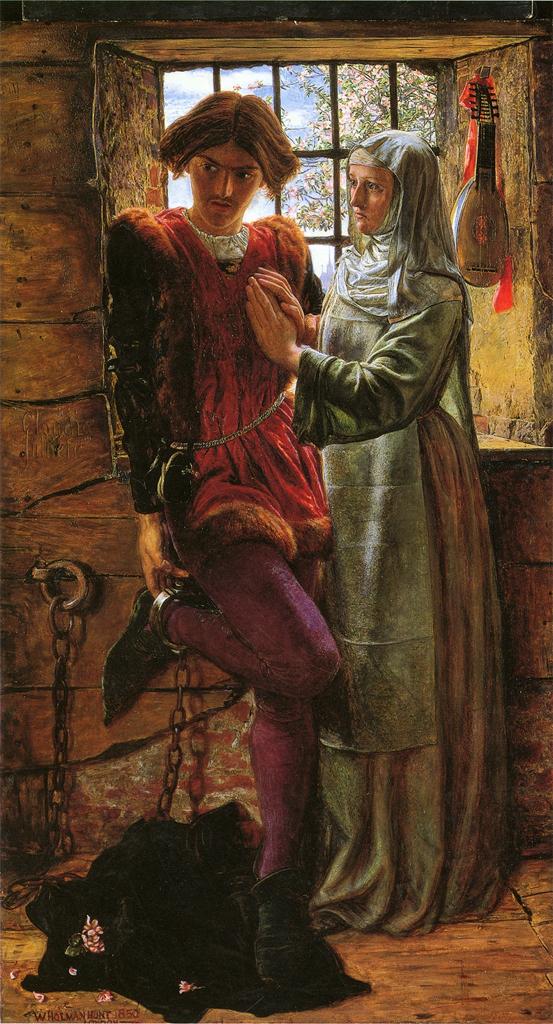The past debates around Isabella’s worth as a character perturb Marcia Riefer, author of “ ‘Instruments of Some More Mightier Member’ : The Constriction of Female Power in Measure for Measure.” Riefer, combatting past interpretations of Isabella as either an “angel” or a “vixen” develops a clear argument about the damaging effect of patriarchy in the play Measure for Measure, dividing her argument into six clearly articulated and logically flowing points.
To open her argument, Riefer points out that the evolution of Isabella’s character is unprecedentedly impacted by the forces of patriarchy surrounding her, rendering her an effect of, rather than an agent in, the plot of the story. The shift from her “articulate” and “compassionate” countenance to one which resembles only “a shadow of her former self” emphasizes her powerlessness as a female character in the comedy (158). The Duke, Riefer argues on the other hand, is in control of the plot but makes questionable judgment from the start. Acting from a place of deception, the Duke exercises an exceptional amount of authority over the outcome of the play, setting it up, in a way, for his own dramatic save in the end.
Female characters, Riefer continues, are the targets of the Dukes’ manipulation and are the only characters that aren’t able to resist it at all in the play. Because sexuality is the central theme of the play, female characters have less “latitude” in avoiding the patriarchy because it is the very tension between patriarchy and female sexual degradation that centers the play. The fear Isabella feels is centered around her fear of disrespect from the male characters in the play, which would be her fate if she engaged in any sexually explicit activities. In resisting the temptation of sexual intercourse, she actually is playing into the structural patriarchy which demands chastity from women.
Isabella’s encounter with that authoritarian patriarchy, Riefer continues, is what degrades her “sense of self” (162). By ignoring her wishes, the male characters in the play push her away from her own desires, including the point when the Duke gets Isabella to go along with his plot. His deceptive identity at this point, too, uses what is a point of pride in Isabella’s character to draw her away from her actual desires, manipulating her to do the very things she would choose not to do by representing himself as a friar.
Isabella’s speech in the first scene of act five, which others have cited as evidence for her growth as a character, represents the degeneration of her character, Riefer claims. It “lacks the integrity of Isabella’s earlier speeches,” Riefer claims (166). That she appeals to “specious legalism” where she earlier would have appealed to faith suggests a fundamental change in her character (166). Overall, the play highlights the struggle between patriarchy and comedy, coming dangerously close to an instance when patriarchy would win over comedy. Patriarchy isn’t subverted enough in the play, Riefer argues.
Relevant Sources:
Riefer, Marcia, “Instruments of Some More Mightier Member”: The Constriction of Female Power in Measure for Measure”. Shakspeare Quarterly, Vol. 35, No. 2 (Summer 1984), pp.157-169. http://www.jstor.org/stable/2869924
http://library.artstor.org/library/secure/ViewImages?id=8D1OdjArJCxdLS04eTx5Rn0rXw%3D%3D&userId=hzZCdDIn&zoomparams=

